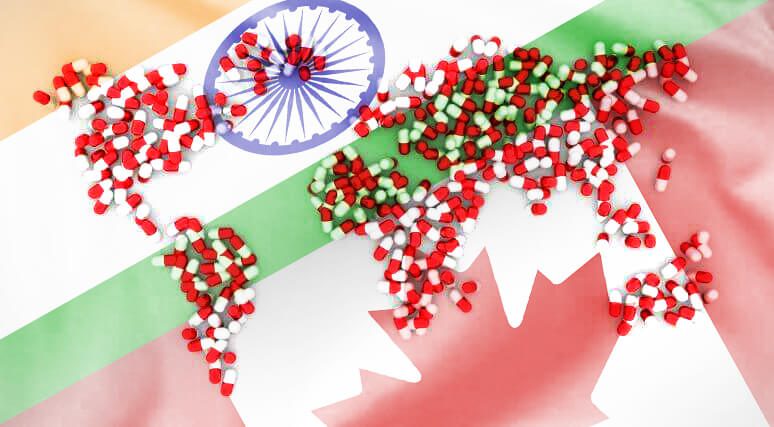 Canada and India have a history of successful partnerships. While Canada-India bilateral relations have taken a dip, a post-COVID world gives both countries an opportunity to rebuild relations and to show global leadership in future pandemic planning, writes Vijay Sappani.
Canada and India have a history of successful partnerships. While Canada-India bilateral relations have taken a dip, a post-COVID world gives both countries an opportunity to rebuild relations and to show global leadership in future pandemic planning, writes Vijay Sappani.
By Vijay Sappani, May 7, 2020
As the COVID-19 pandemic spreads over the world, governments are struggling to grapple with the scale of the crisis and to get ahead of it when and where possible.
A direct consequence of the crisis has been the disruption of global supply chains. The West needs to prepare for the new demands of pandemic planning in a post-COVID world.
The solution to the new crisis might lie in India. In public statements following Prime Ministers Justin Trudeau and Narendra Modi’s first pandemic call last week, both Canada and India prominently featured the potential for medical partnership. Two days ago, a consignment of five million hydroxychloroquine tablets arrived in Canada from India.
Seventy to 80% of the world’s drugs come from India and China. India is the world’s largest supplier of generic drugs and a leading producer of vaccines in the world, serving about 50% of global vaccine demand.
Canada cannot rely on countries like China to supply drugs, PPE, and other medical supplies. Indeed, China has opted to hoard much of these supplies, doling it out selectively in a transparent propaganda move to showcase its “generosity” and shift the narrative to one that falsely extols Beijing’s success in battling the virus.
India is aware of the global dependence on its pharmaceutical industry and has done everything possible to keep it functioning while also ensuring the safety of its own citizens. Its pharmaceutical sector is already contemplating the opportunity of expanding its products to reduce future dependence on China and offer better value to its clients. This is an opportunity for Canada to get ahead of the world and partner with India.
Canada and India have a history of successful partnerships. While Canada-India bilateral relations have taken a dip, a post-COVID world gives both countries an opportunity to rebuild relations and to show global leadership in future pandemic planning.
Both Canada and India have provided development aid with focus on health care to African countries. Canada can partner with India not only for our own pandemic planning, but to also strengthen aid commitments to the Global South.
India is a top exporter of generic drugs. Canada should explore partnering with India for long-term procurement and supply of PPE, drugs, and other essentials during normal and pandemic times. Canada discarded 2 million N95 masks last year that were part of pandemic planning storage and never reordered them.
Canada can better utilize taxpayer money and prepare for pandemics through a new procurement and storage strategy. Beyond our storage in Canada, we need a partnership with India that involves storage and annual insurance payments for priority production in India. This will reduce our risk of being stuck with expired goods, and put us on a priority during a pandemic or any similar emergency.
Setting up a stockpile in another country is not an entirely new idea. The UAE and Saudi Arabia haveagreements with India to store crude oil reserves, with India getting the first right of use in case of emergency. Canada can follow suit and stockpile pharmaceuticals in India.
Given India’s manufacturing capacity, our shared ideals of democracy and freedom, and mutual belief in a liberal rules-based order, this would demonstrate commitment to each other.
Stockpiling a strategic reserve of medical supplies for Canadians in India will serve to demonstrate Canada’s commitment to deeper ties with India, and generate more stable medical supply chains. Given that Canada’s relations with India have been driven by domestic considerations, this could be a creative first step towards breaking from those shackles and starting a new era of cooperation and trust.
As debates erupt about actions for the immediate future, Canada can do better than a kneejerk reaction.
Vijay Sappani is a board member for the Macdonald-Laurier Institute and a long-time pharmaceutical executive.




